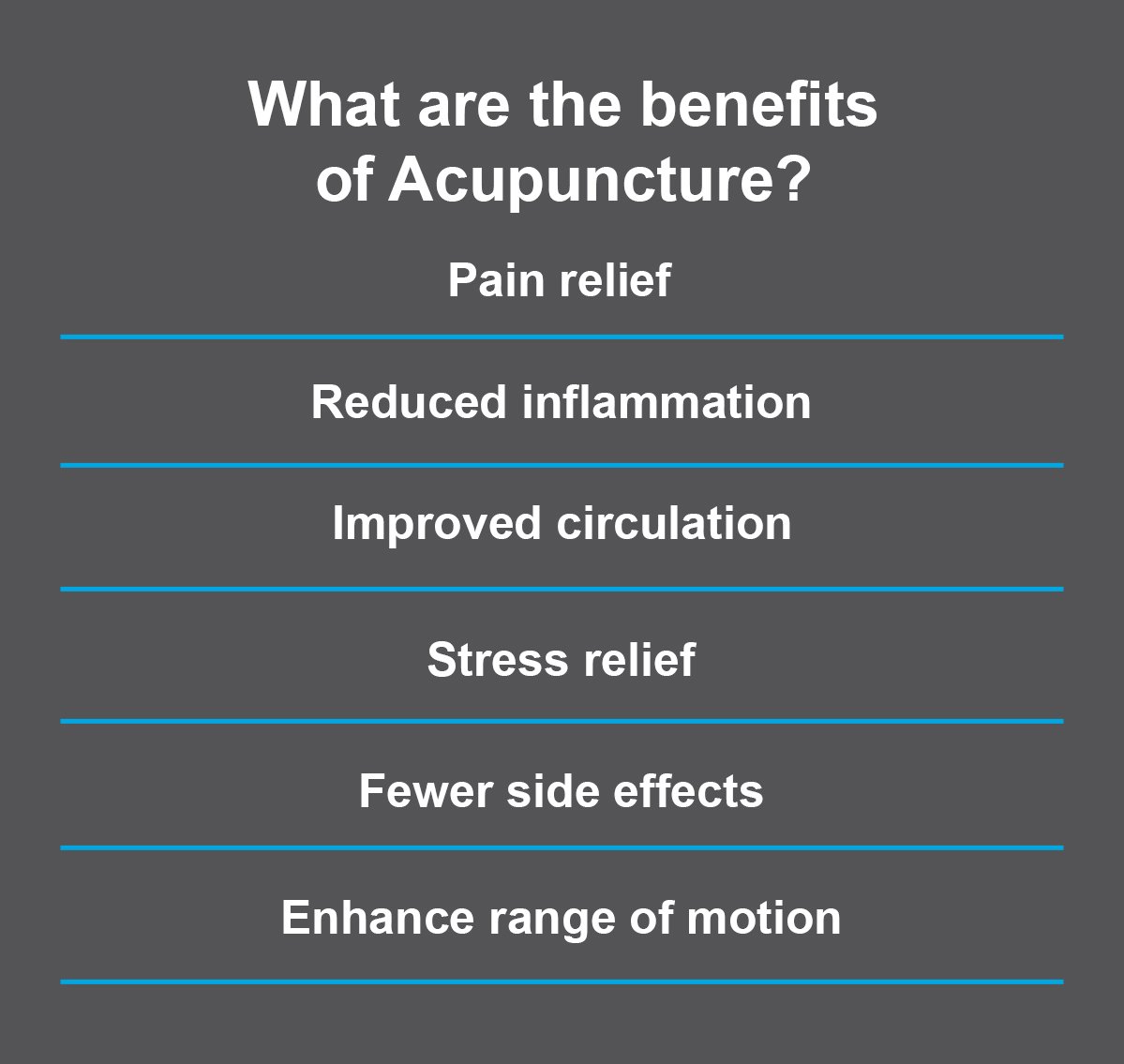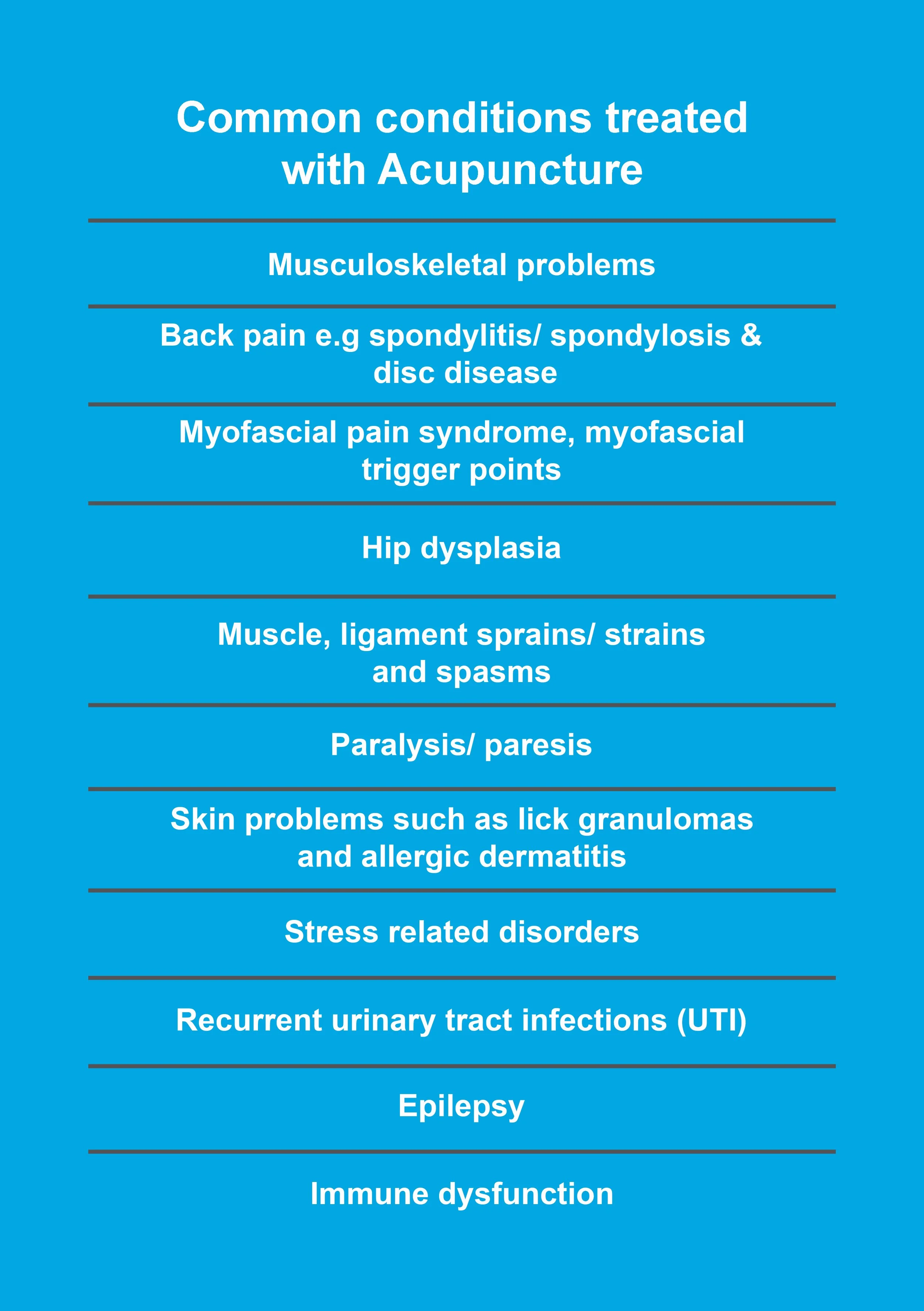
Acupuncture
Acupuncture at Beacroft Referrals
Kirsty Raistrick has completed the ABVA (Association of British Veterinary Acupuncturists) foundation course and offers acupuncture sessions for both cats and dogs. We also work with various GP vets in the area that also offer acupuncture.
Acupuncture is defined as the insertion of needles into specific points on the body to produce a healing response. Each acupuncture point has specific actions and effects when stimulated. It has been practiced by the Chinese and other Eastern cultures for thousands of years and can be used to treat a wide variety of illnesses.
Scientific research into acupuncture has made enormous progress over the past 40 years and now explains many of acupuncture’s actions, which had previously only been understood in the ancient concepts of health described in Traditional Chinese Medicine. This has brought about the greater recognition and acceptance of acupuncture within the scientific community.
Early research focused mainly on pain relief and the endogenous opioid responses to acupuncture, however, further advances have revealed potent normalizing effects to the hypothalamus and autonomic nervous system. This has opened the understanding of its use in all manner of musculoskeletal (arthritis, neuropathic pain, soft tissue injury) and internal medical disorders including respiratory, digestive, and reproductive problems.
What is Acupuncture?
How does Acupuncture work?
It has been shown that acupuncture points that have pain relieving properties associated with them tend to activate specific pain-association brainstem regions. The National Institute of Health developed a consensus statement about acupuncture and its efficacy. NIH said that there was compelling evidence that acupuncture was useful in the management of osteoarthritis and musculoskeletal pain.
In western medical terms, acupuncture can help the body to heal itself by affecting certain physiological changes. For example, acupuncture can relieve muscle spasm, stimulate nerves, increase blood circulation, and cause the release of hormones, such as endorphins (one of the body’s pain control chemicals) and cortisol (a natural steroid).
Although many of acupuncture’s physiological effects have been studied, many more are still unknown. Further research must be conducted to discover all of acupuncture’s effects and its proper uses in veterinary medicine.
Want to keep up to date? Follow us!
Is Acupuncture safe for animals?
Acupuncture is one of the safest forms of medical treatment for animals when it is administered by a properly trained veterinarian. Side effects of acupuncture are extremely rare. An animal’s condition may seem worse for up to 48 hours after a treatment. Other animals become lethargic or sleepy for 24 hours. These effects are an indication that some physiological changes are developing, and they are most often followed by an improvement in the animal’s condition
How long will the treatment session take?
Initial session will take around 45 minutes to complete and sessions from then onwards are around 20-30 minutes. The frequency of treatment sessions is individual to each case and will be discussed in your first session. Generally, it is recommended to have 1-2 treatment a week for 4-6 weeks and then the frequency of treatments can be reduced.
If you are interested in acupuncture, please contact the centre to discuss our treatments further.




